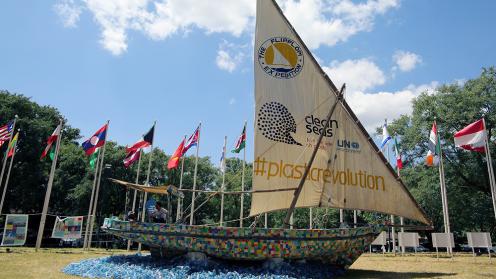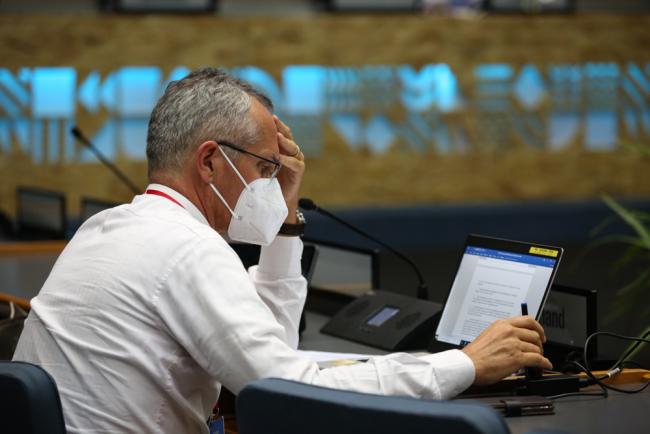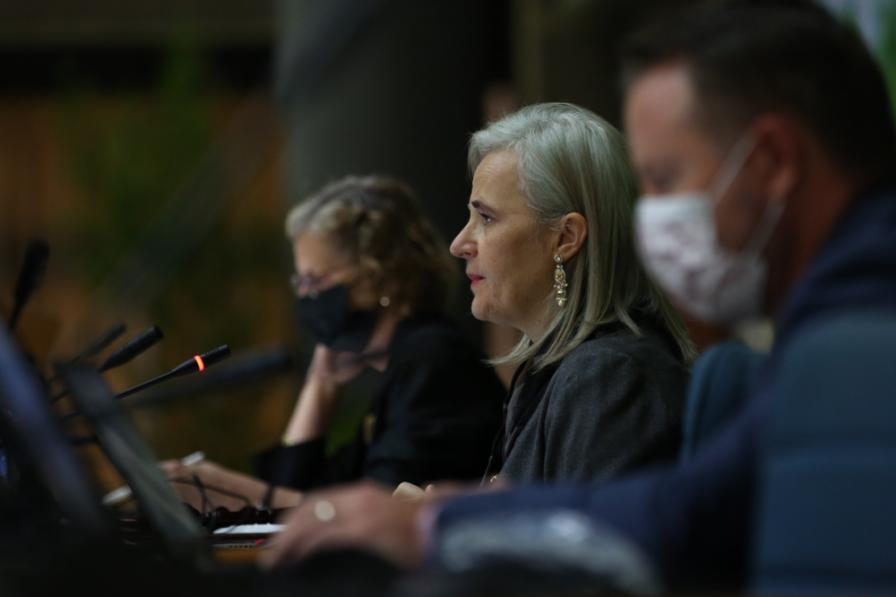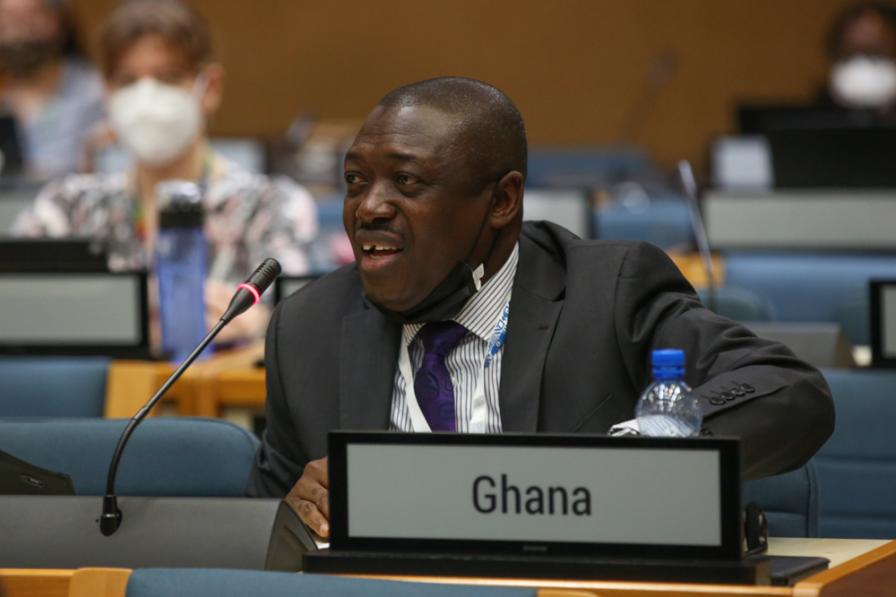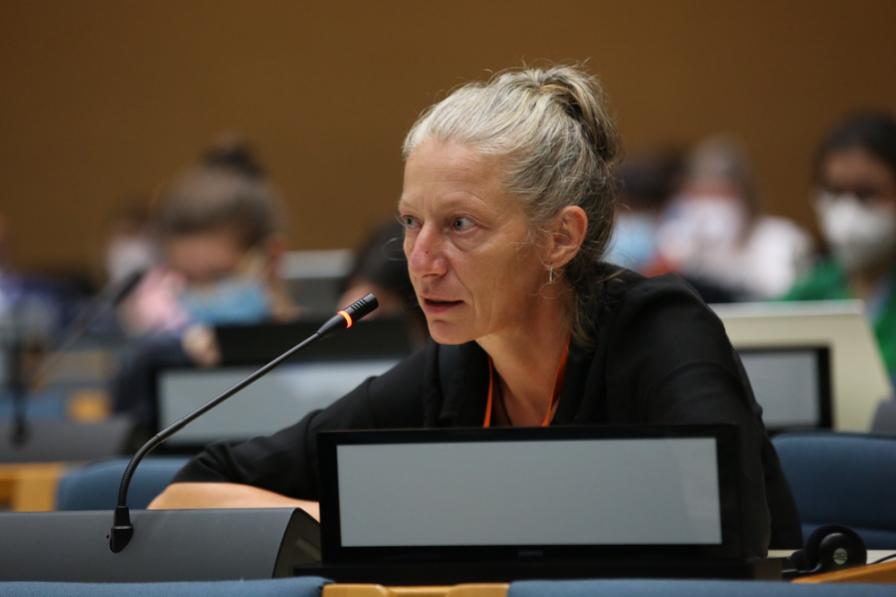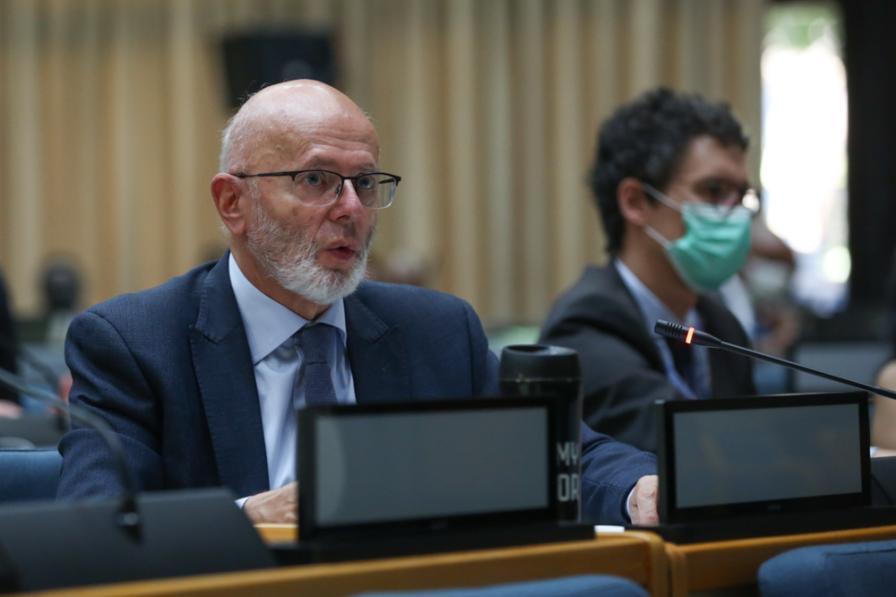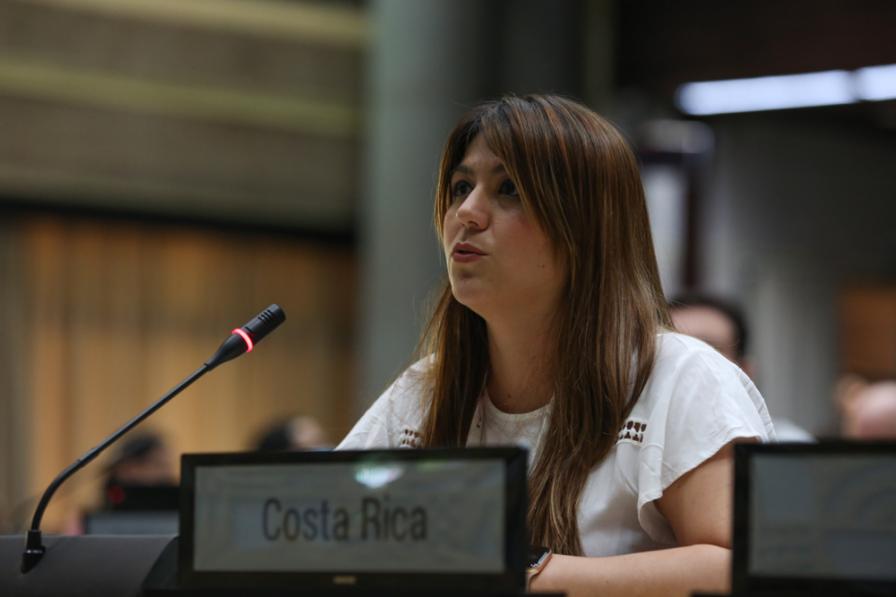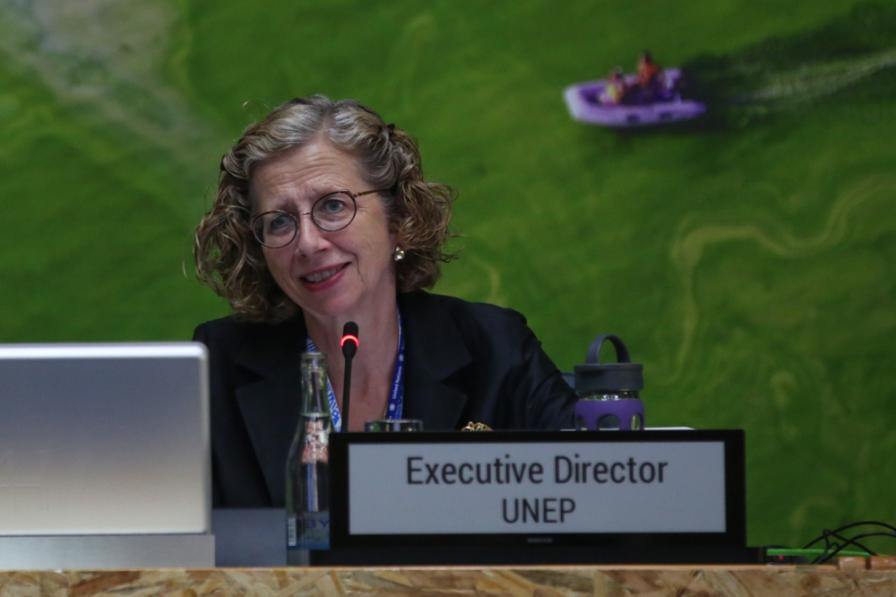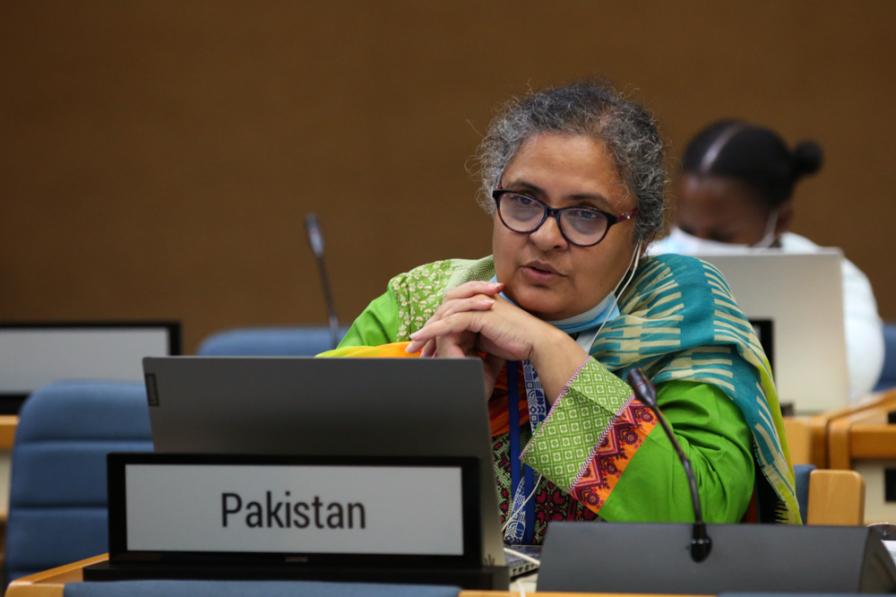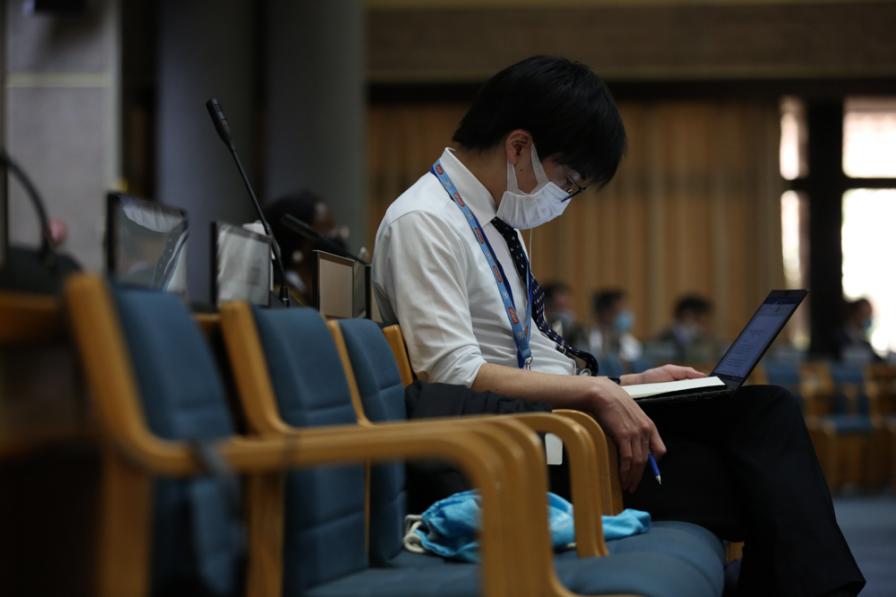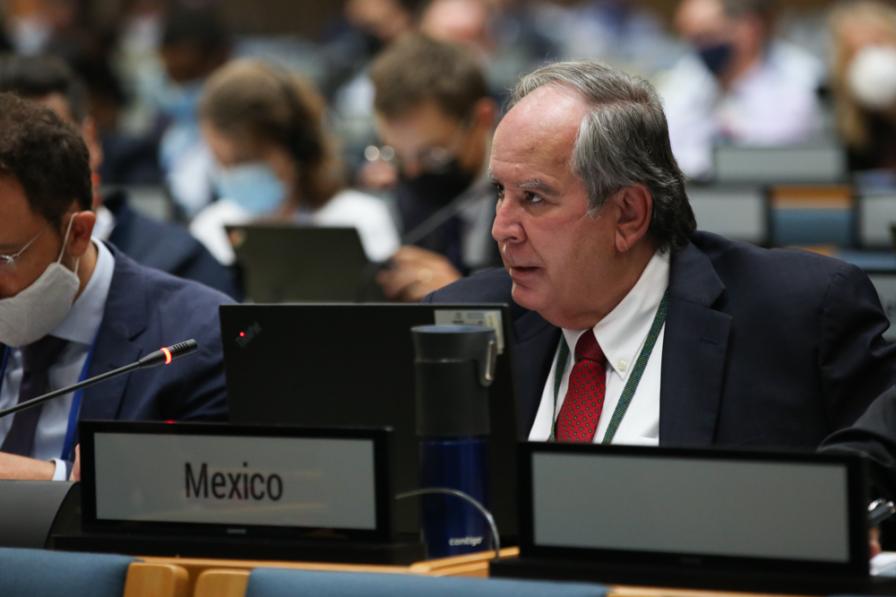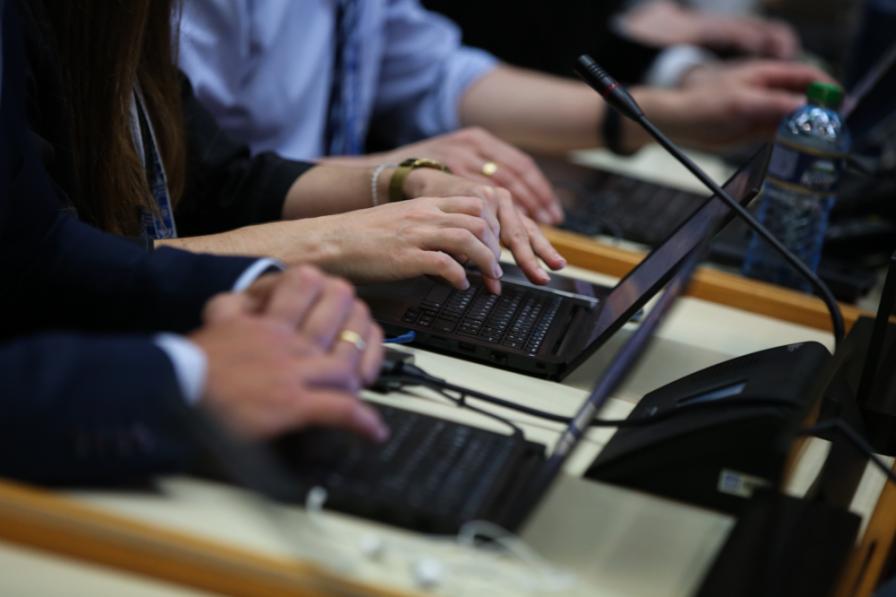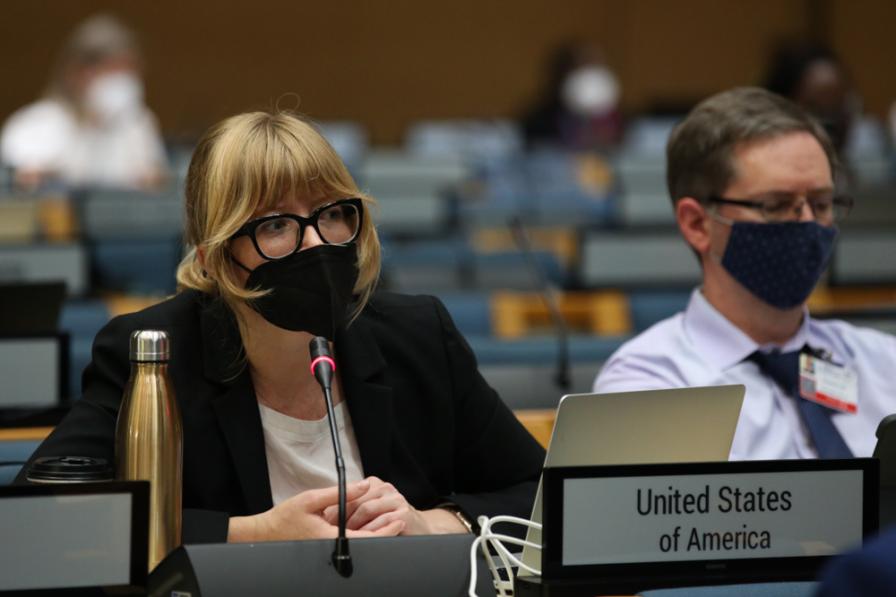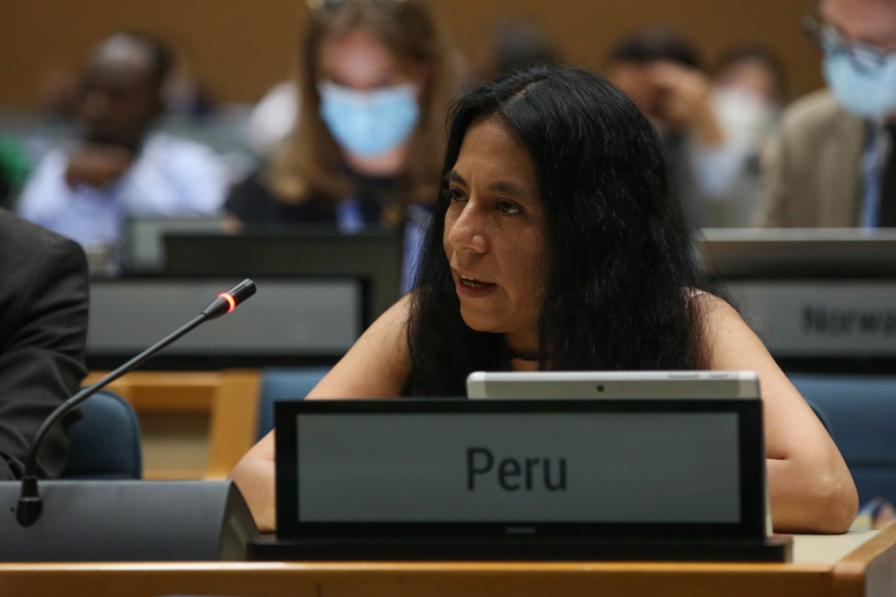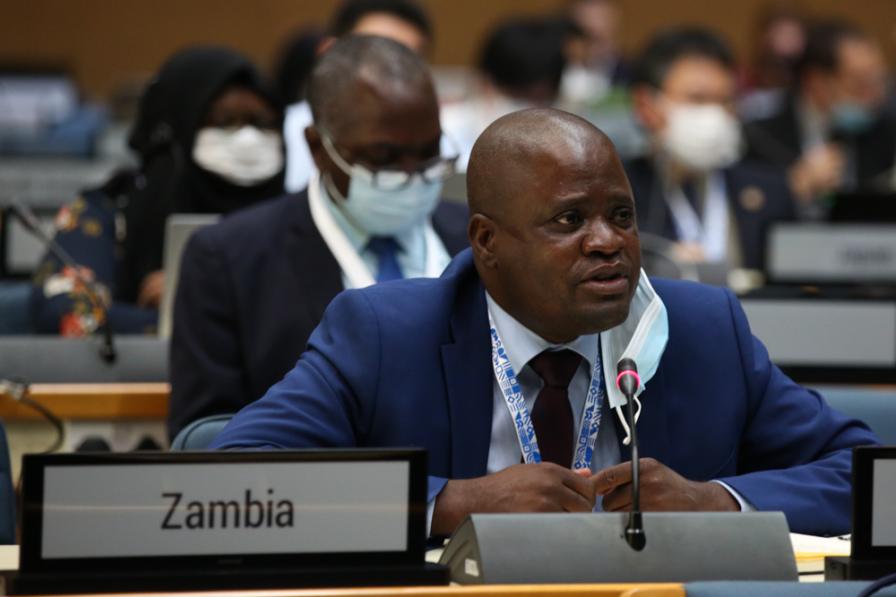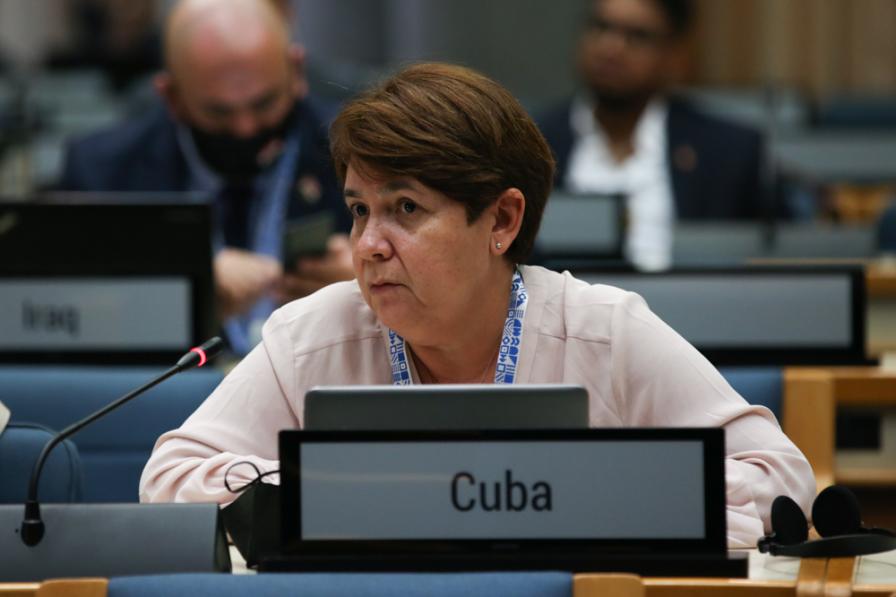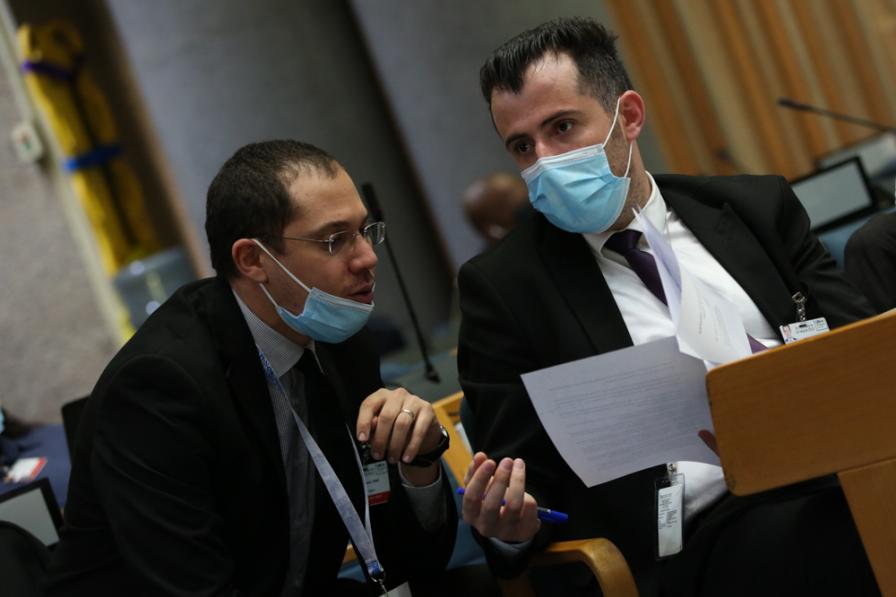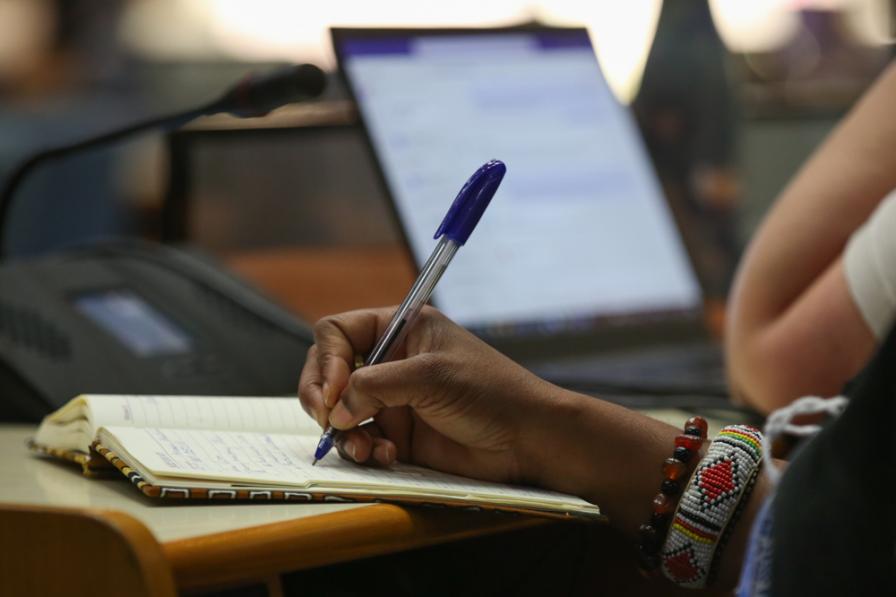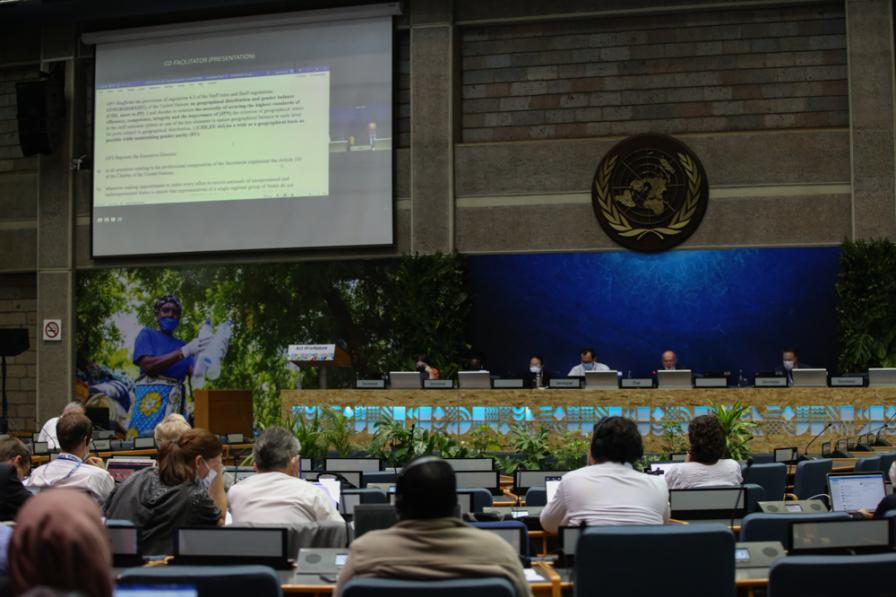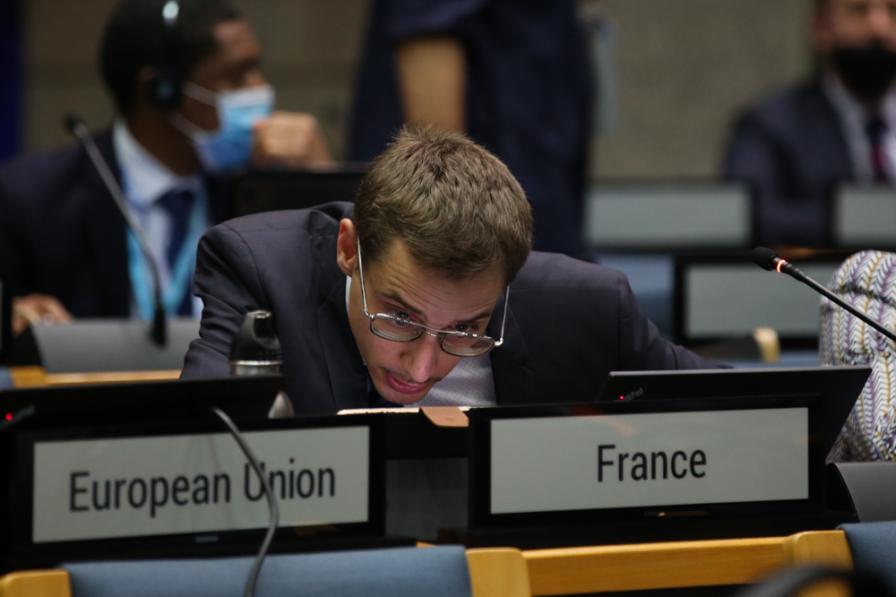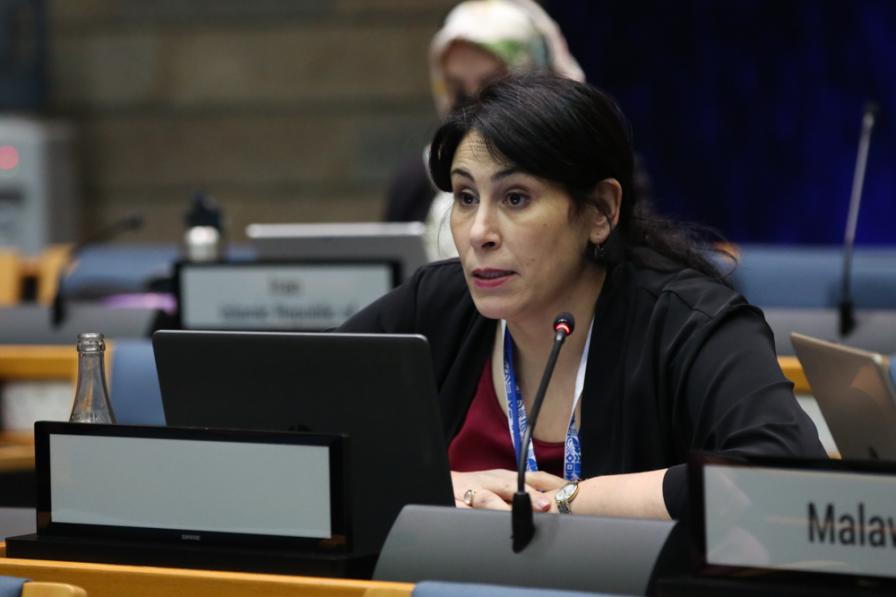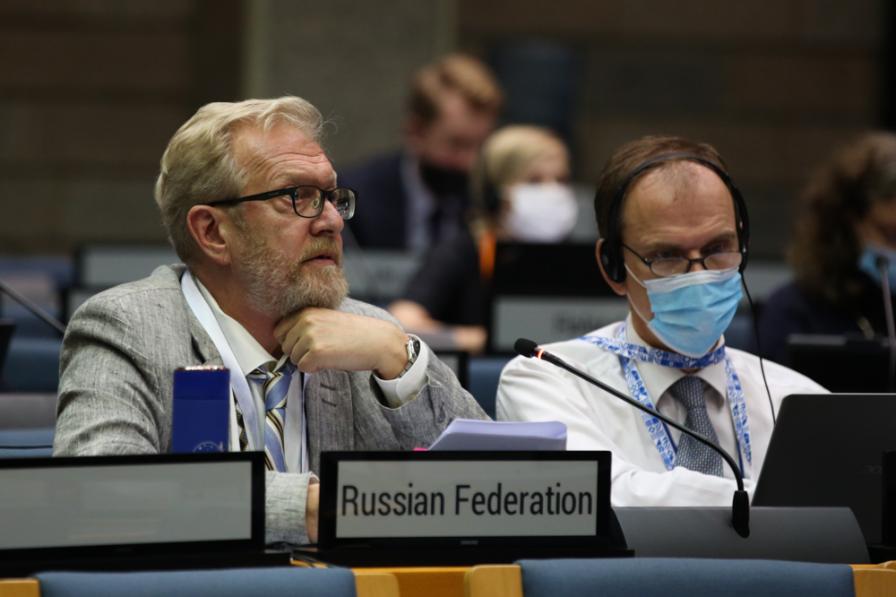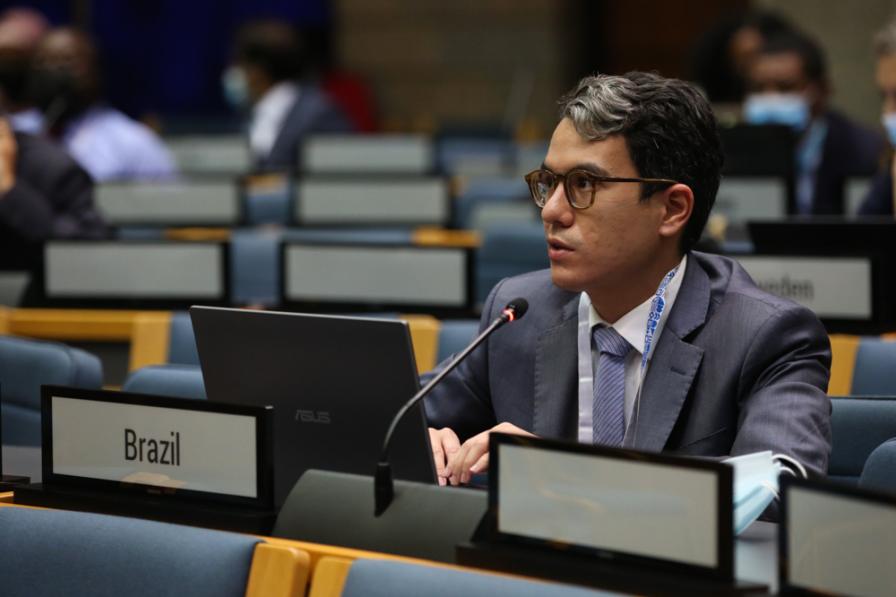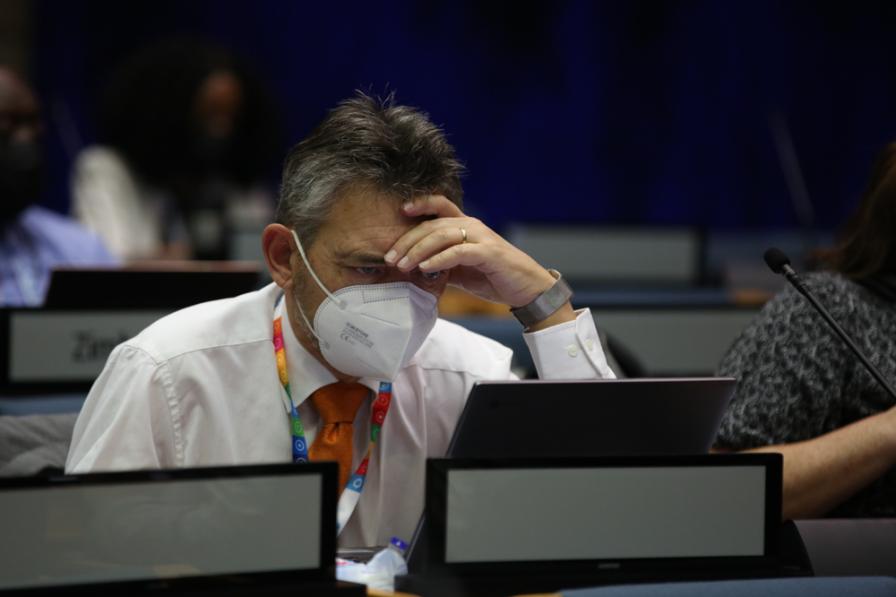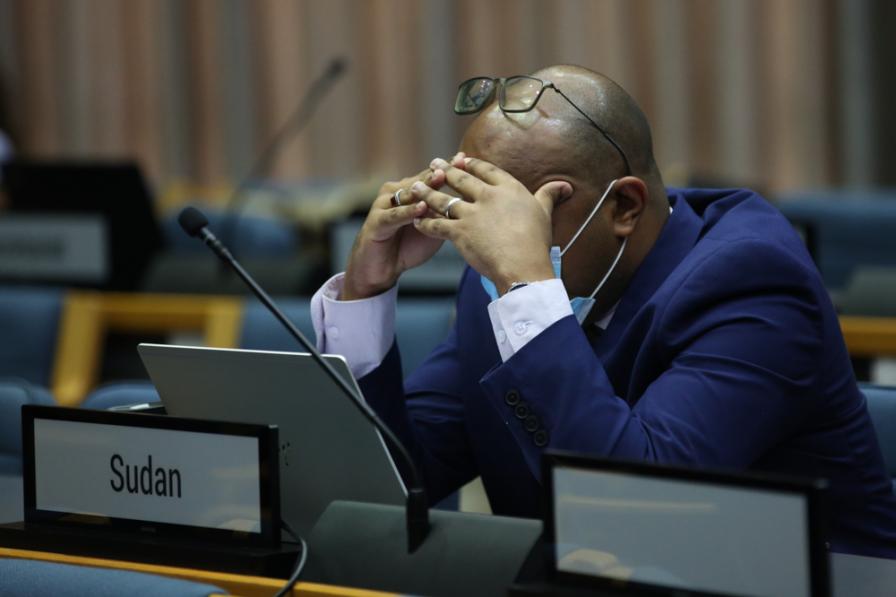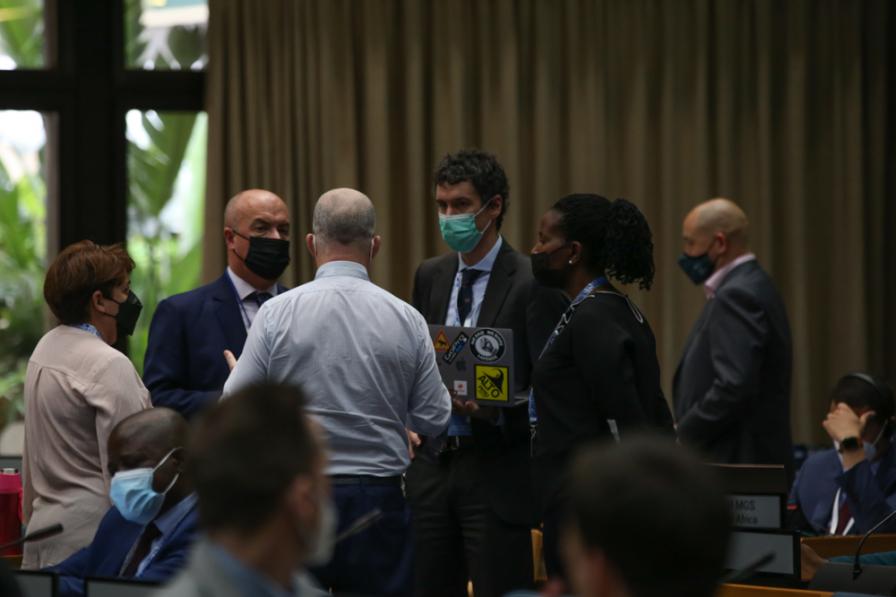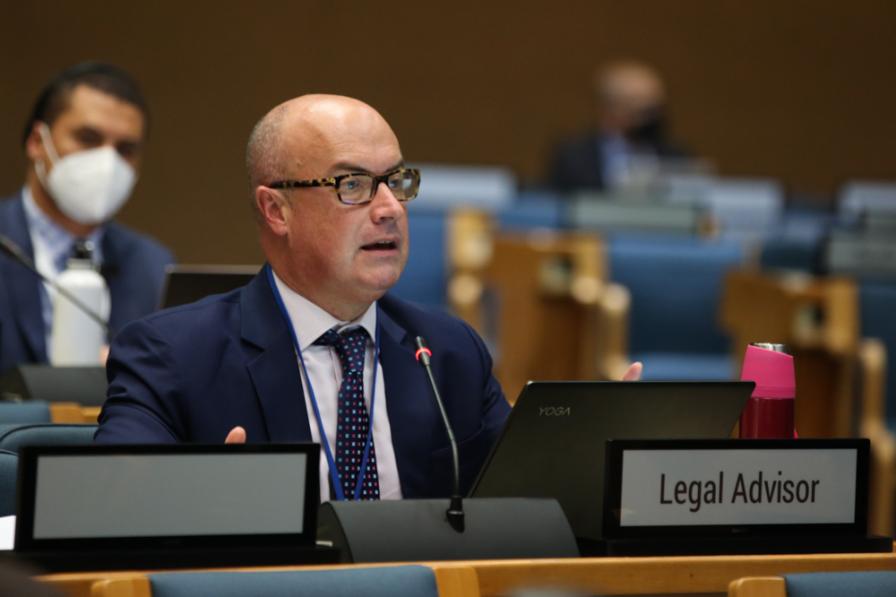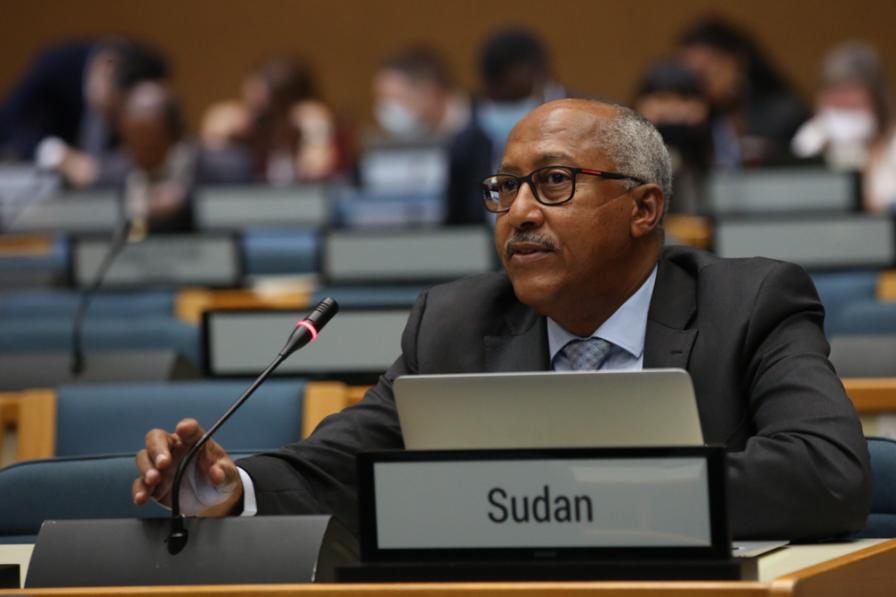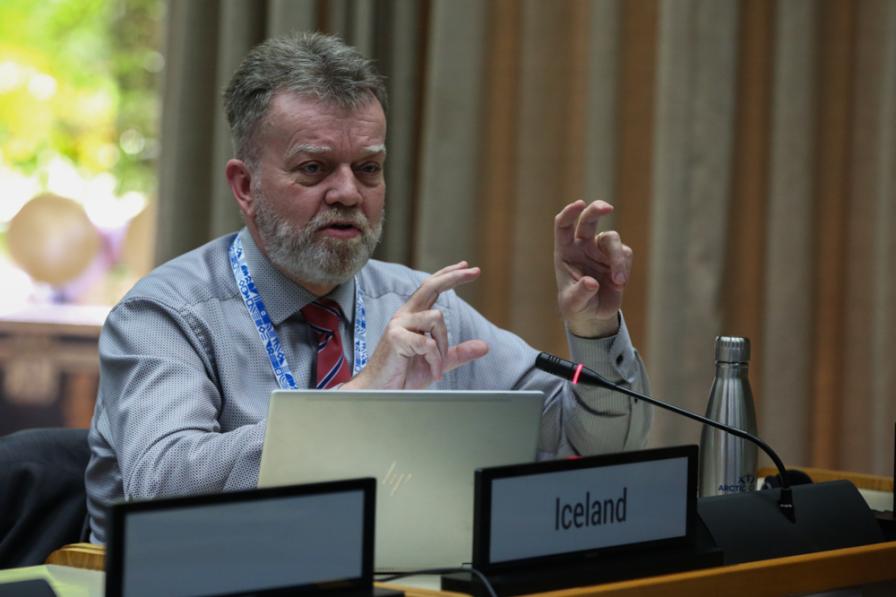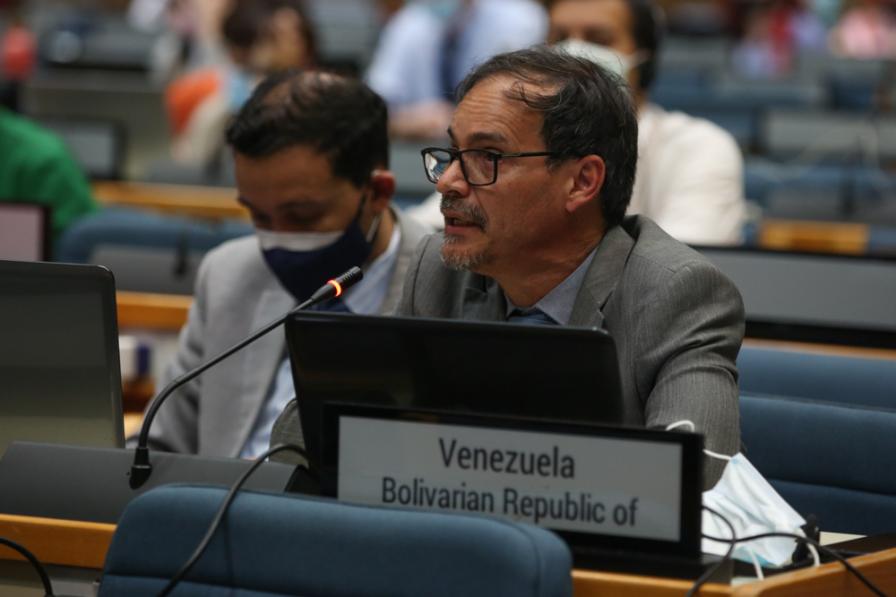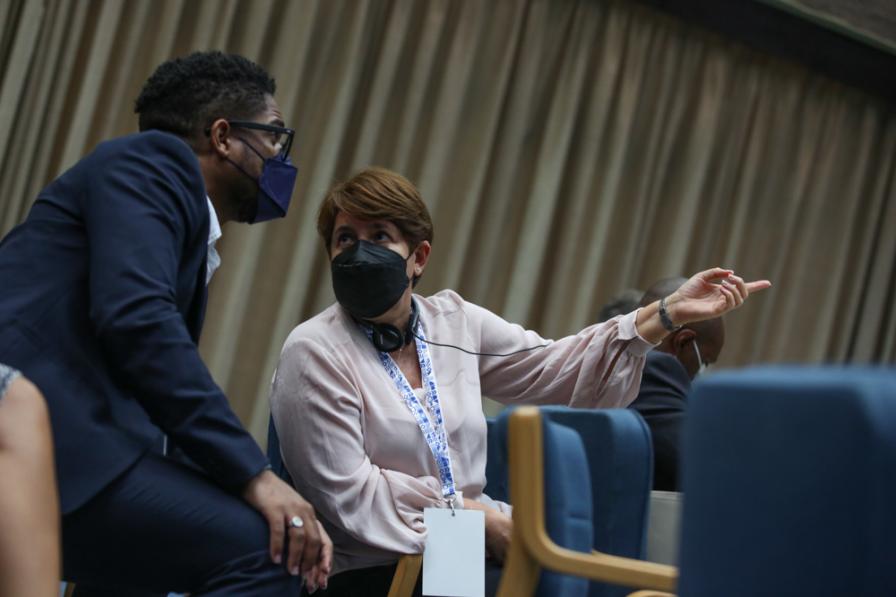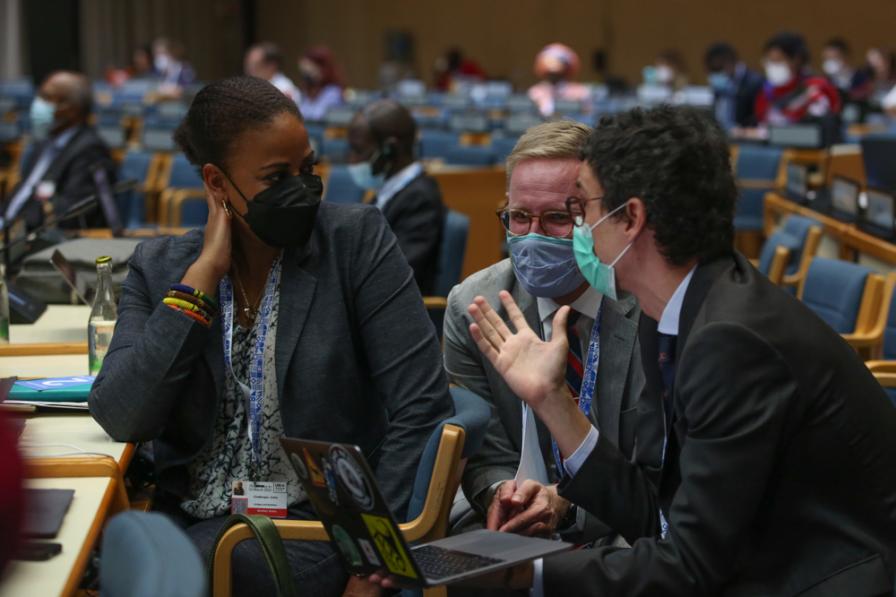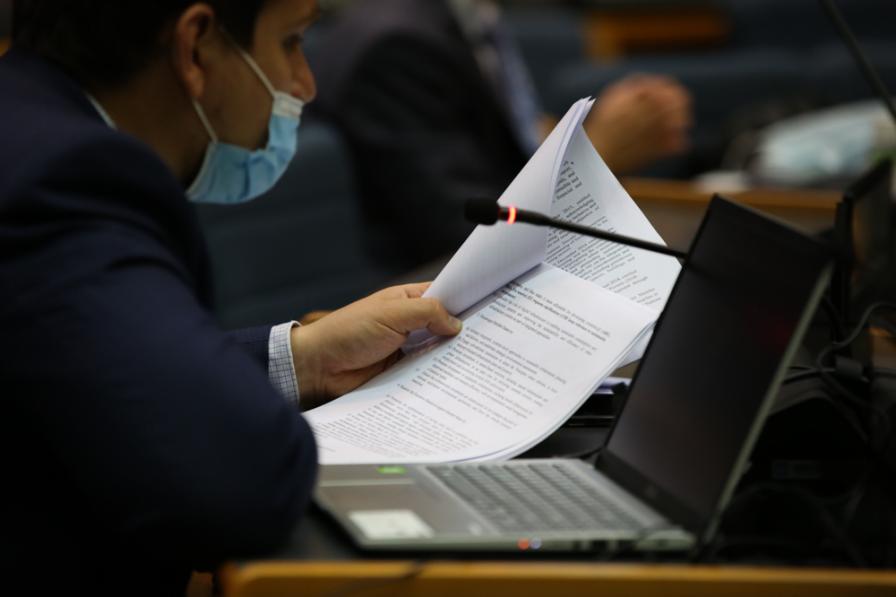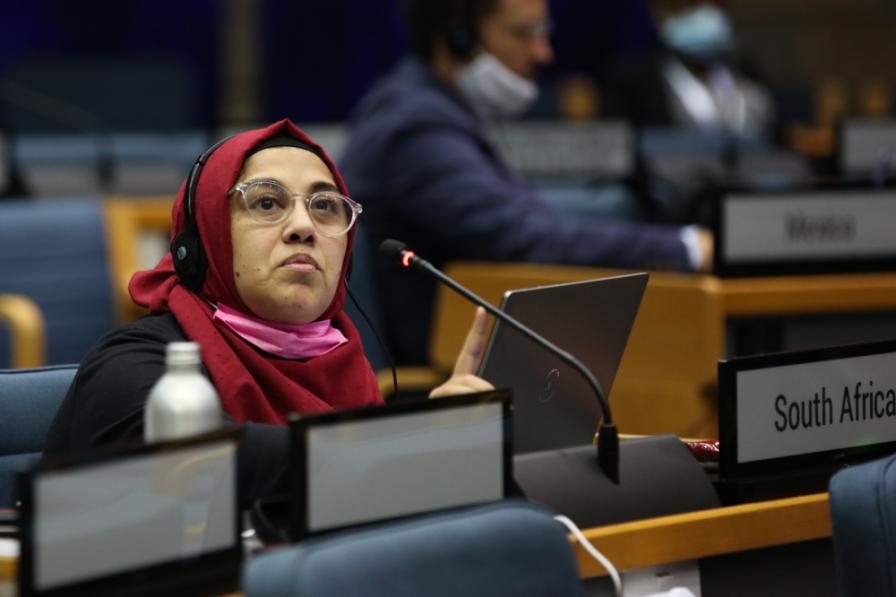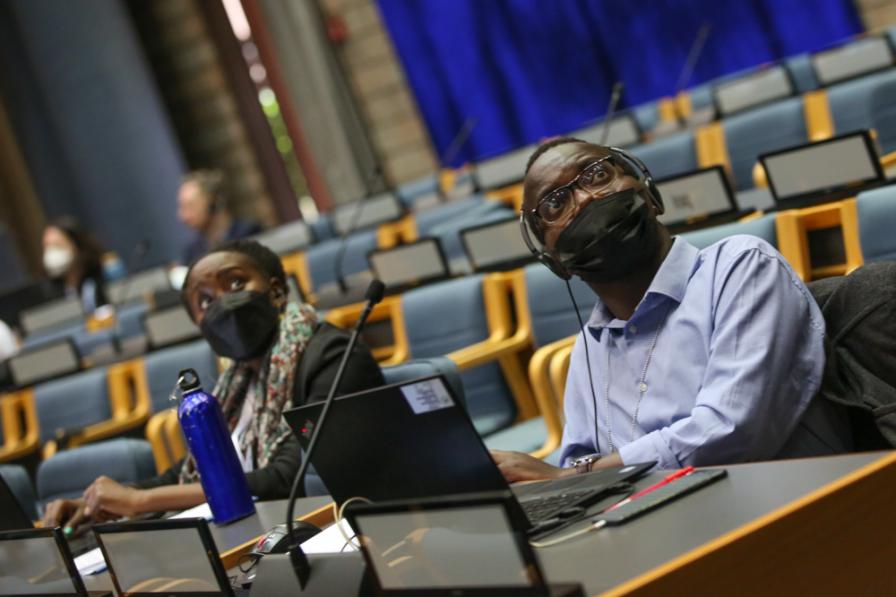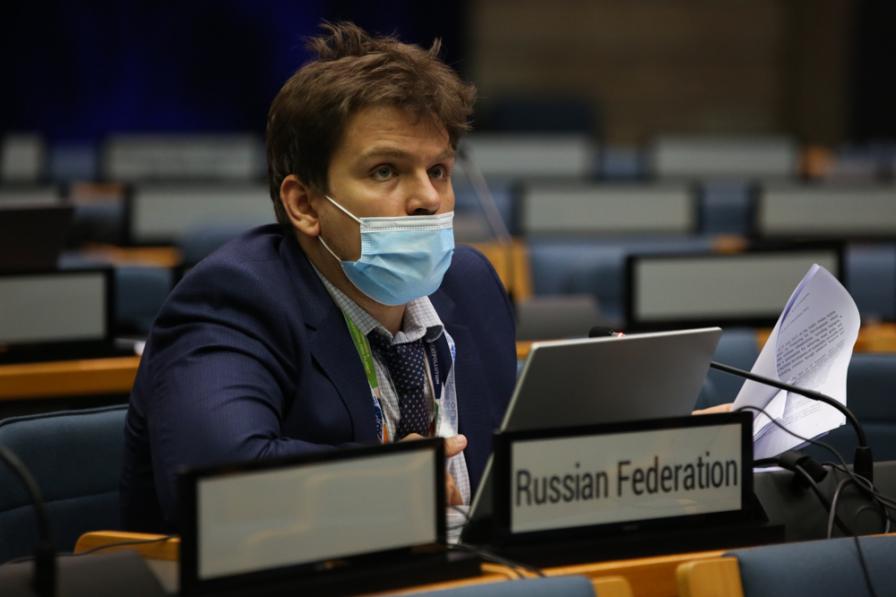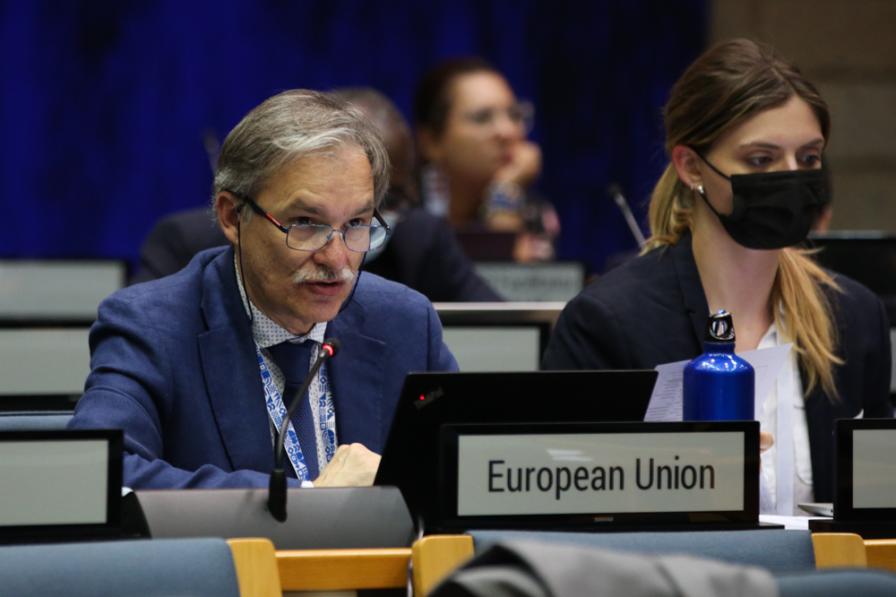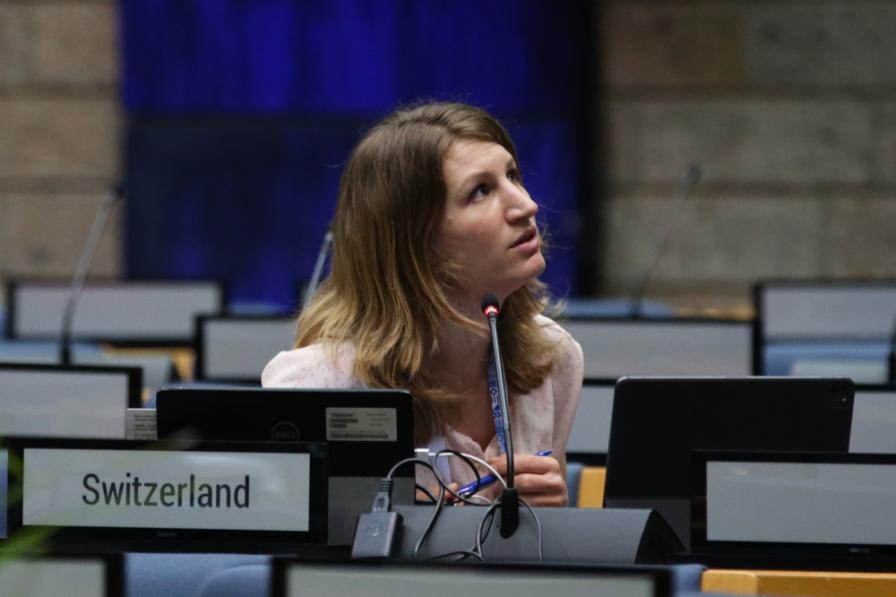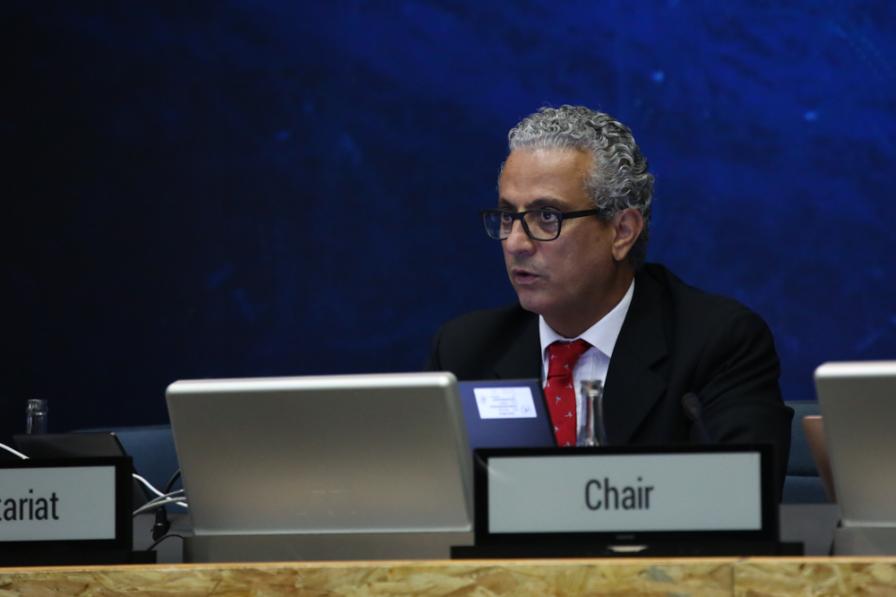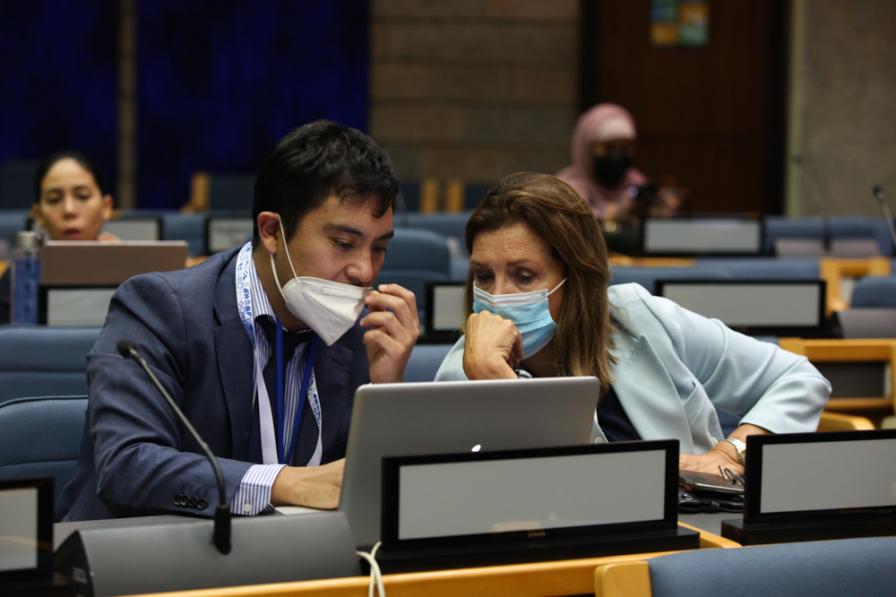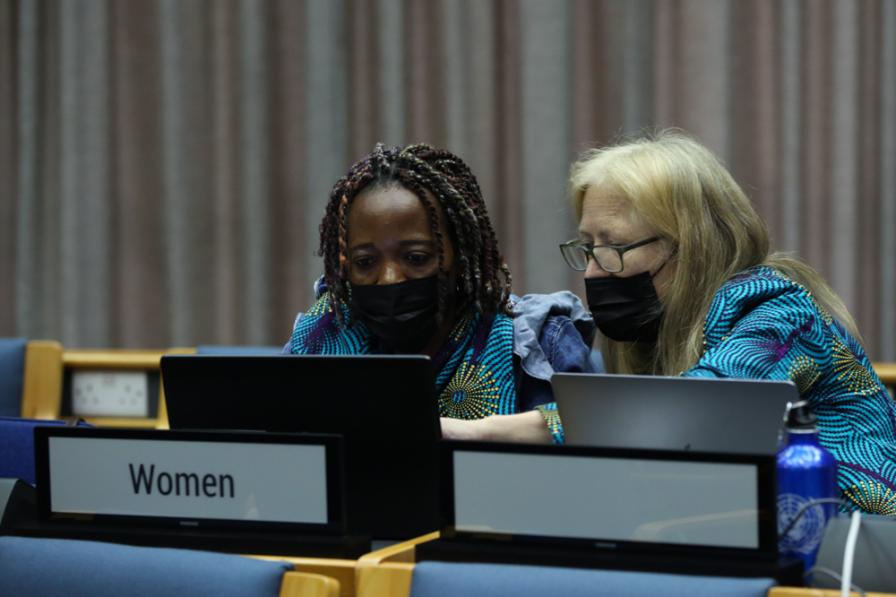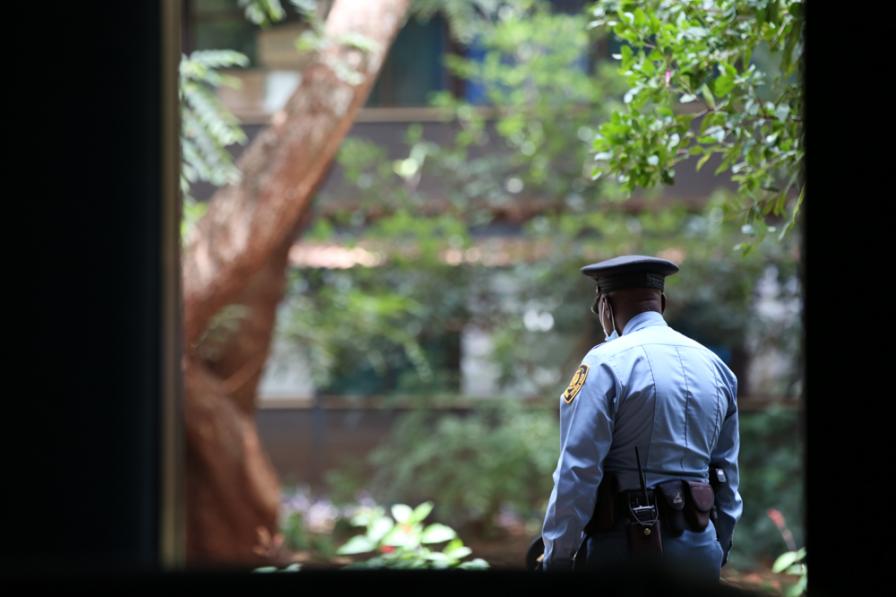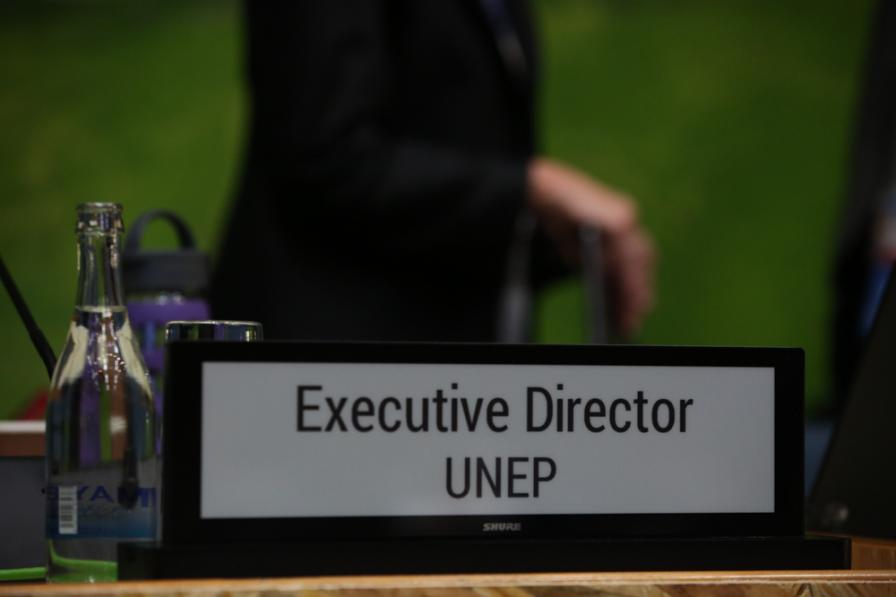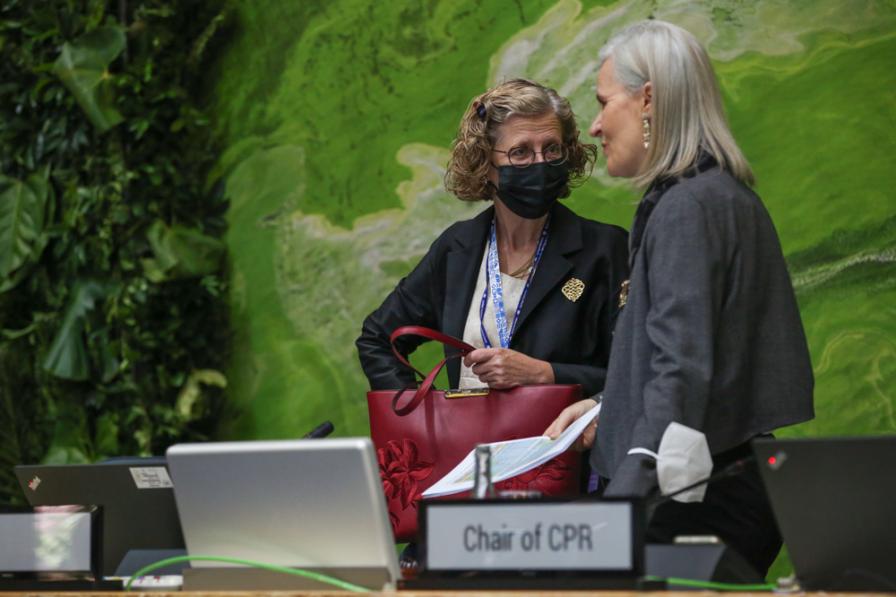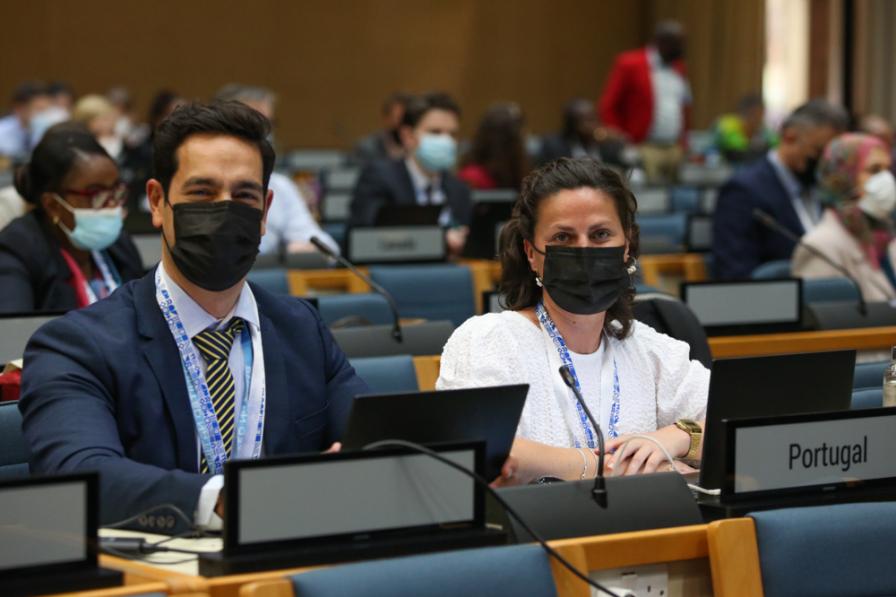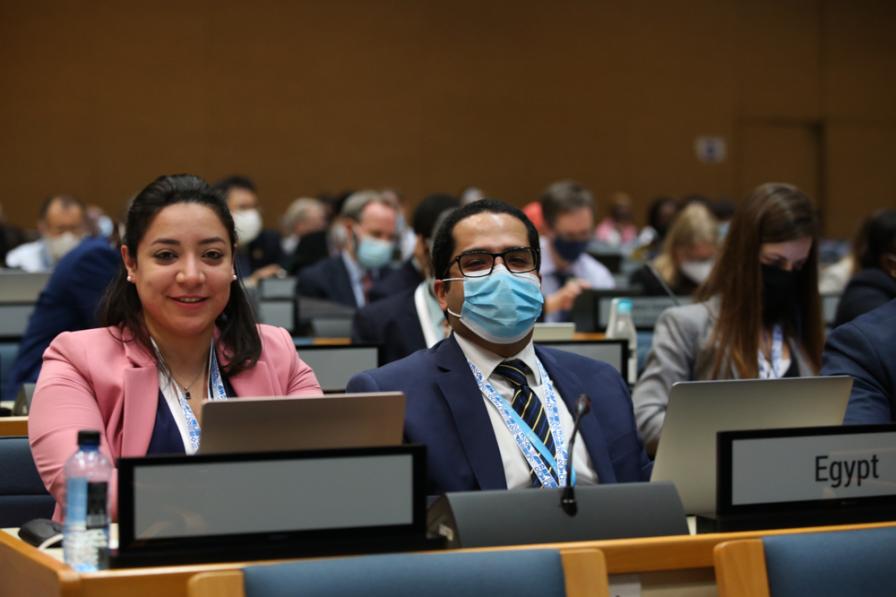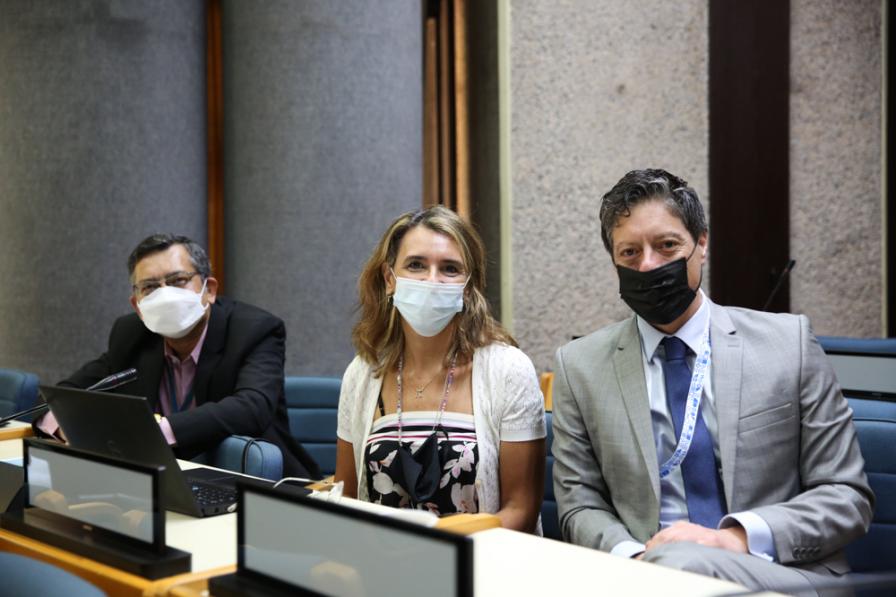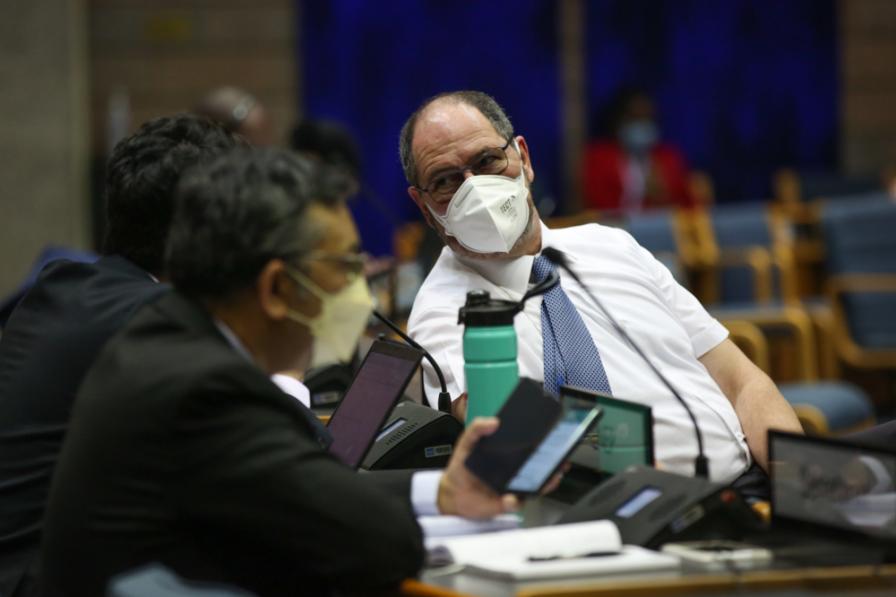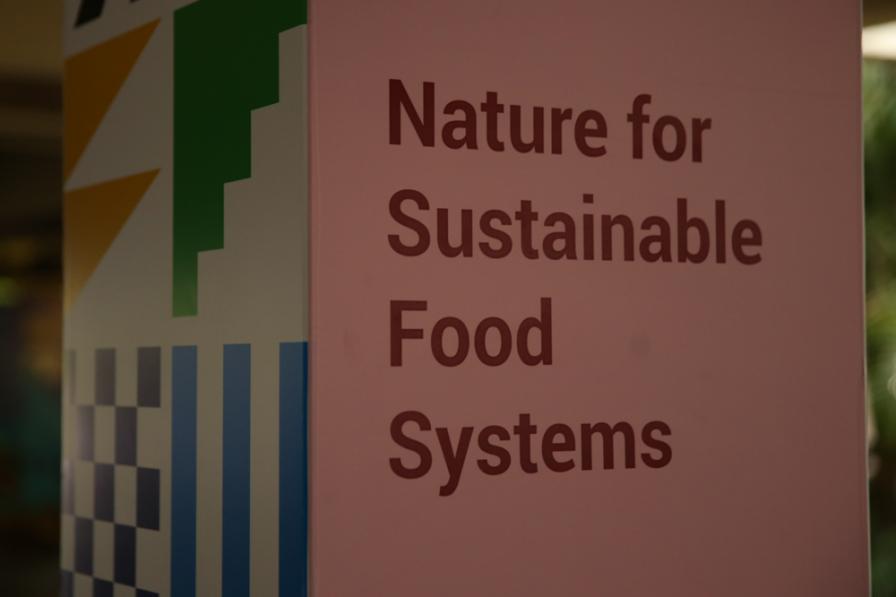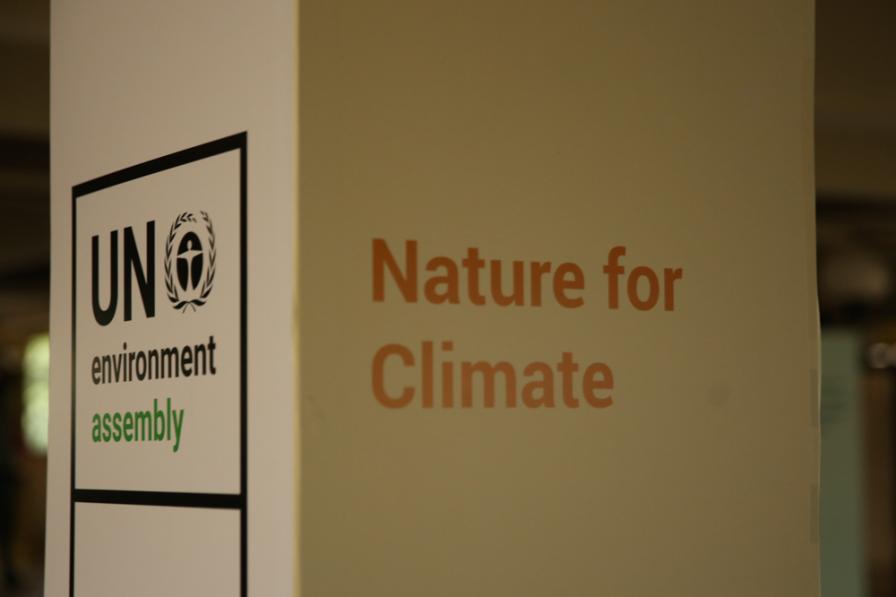On Wednesday, 23 February 2022, weary negotiators streamed into the Stocktaking Plenary following late night and early morning consultations. Working Group Co-Facilitators reported progress achieved which, in most cases, is proving to be slow but sure progress. Smaller delegations cautioned against extended overtime discussions and holding several informal-informals in parallel, noting their inability to participate effectively.
Delegates met thereafter in the two informal working groups and in a number of informal-informal consultations throughout the day, and into the night.
To dive deeper, read the full daily Earth Negotiations Bulletin report.
Working Group 1 spent the daylight hours focused on plastic pollution. Having completed a first reading of the Co-Facilitators text on Tuesday night, Co-Facilitator Damptey Bediako Asare (Ghana) called on delegates to address the remaining challenges. They began discussions on a “basket of issues” and reached consensus on the deadline for the proposed intergovernmental negotiating committee (INC) on [marine] plastic pollution, agreeing to the ambitious end-date of 2024. Some divisions emerged over the location of the open-ended working group meeting to prepare for the INC, with some preferring the United Nations Environment Programme (UNEP) headquarters in Nairobi as the ideal venue. Others were not so keen on the venue being set in stone, pointing in part to potential COVID-19 related travel considerations.
In Working Group 2, delegates resumed discussions on the compliance with the principle of equitable geographical distribution in the composition of the Secretariat of UNEP, with delegates debating whether to add gender parity or maintain geographical diversity as a separate issue. Delegates also proposed highlighting the need to increase competence, and representation of unrepresented and underrepresented states, without setting quotas on hiring.
On sustainable and resilient infrastructure, delegates agreed to integrate environmental assessments to guide decision making. Several held reservations on nature-based solutions (NBS) preferring to tackle this after concluding discussions on NBS for sustainable development under cluster 2. On mineral resource governance, views differed on whether to establish an open-ended working group. In the evening, delegates met to discuss the draft resolution on NBS, submitted by the European Union.
To receive free coverage of global environmental events delivered to your inbox, subscribe to the ENB Update newsletter.
All ENB photos are free to use with attribution. For UNEA-5.2, OECPR-5.2, and UNEP@50, please use: Photo by IISD/ENB Kiara Worth.
